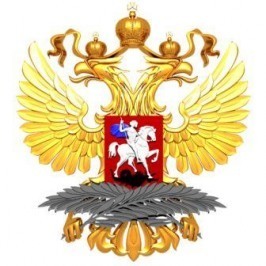On January 31, the UN International Court of Justice delivered its judgment on the merits in the case filed by Ukraine in January 2017 on the Application of the International Convention for the Suppression of the Financing of Terrorism (ICSFT). Russia’s arguments undercutting Ukraine’s groundless insinuations were heard in The Hague: the Court rejected almost all of more than 20 submissions made by Kiev during the seven-year proceedings, and left Ukraine without any reparations.
The International Court of Justice did not follow Kiev’s lead and refused in principle to recognise Russia as an aggressor state. The Court also dismissed Ukraine’s insinuations that the DPR and the LPR are allegedly terrorist organisations.
These findings are of particular importance in light of the fact that Kiev intended to use the Court’s Judgment to support its demands for the transfer of Russian assets stolen in the West and the imposition of international restrictions on Russia.
In addition, the Court rejected Ukraine’s claim under the ICSFT that Russia should be held responsible for the crash of Boeing Flight MH17 and did not accept the Ukrainians’ allegations that the DPR was involved in the crash. During the hearing, Russia presented compelling evidence of fatal flaws in the pseudo-international investigation of the incident by the Joint Investigation Team under the umbrella of the Dutch justice system.
With regard to the events of 2014-2017, the UN International Court of Justice was unable to support Ukraine’s arguments about Russia’s alleged involvement and the guilt of the Donetsk militias in the shelling of the Bugas military checkpoint near Volnovakha, the military airfield in Kramatorsk, where the headquarters of the so-called ATO was located, and AFU positions in Mariupol and Avdeyevka, stating that these incidents did not fall under the ICSFT.
The Russian side highlighted the particular cynicism of the Ukrainian allegations: Kiev tried to present strikes against military targets as “acts of terror,” although the Ukrainian armed forces have been firing on the cities of Donbass with heavy weapons for many years, striking civilian objects, including an air strike on the building of the Lugansk regional administration on June 2, 2014, the killing of civilians in an attack on a public transport stop in Donetsk on January 22, 2015, and many other bloody crimes.
Equally cynical is the way in which the Kiev regime tried to designate humanitarian aid to Donbass residents suffering from Ukrainian shelling and the economic blockade as financing terrorism.
The UN International Court of Justice stated that Russia had complied in good faith with its obligations to cooperate in the field of terrorism financing, including the obligation to identify and freeze assets used to finance terrorism; to extradite or independently prosecute perpetrators of terrorist crimes; to provide mutual legal assistance; and to cooperate in the prevention of terrorist crimes. This is fully consistent with the FATF’s earlier conclusions about the high level of Russia’s fulfillment of its obligations in this area; the FATF assessed Ukraine’s claims as being of a purely political nature.
We were bewildered, against this background, at the Court’s conclusion that Russia had failed to take measures to investigate two facts contained in information received from Ukraine regarding persons who have allegedly collected funds in Russia to help the people of Donbass. The Court had to go against its own practice and set an unprecedentedly low bar for proving the applicability of the Terrorist Financing Convention when there was no evidence of either terrorism or its financing.
As a result of the proceedings, Ukraine was completely denied all claims for reparation or other forms of compensation.























